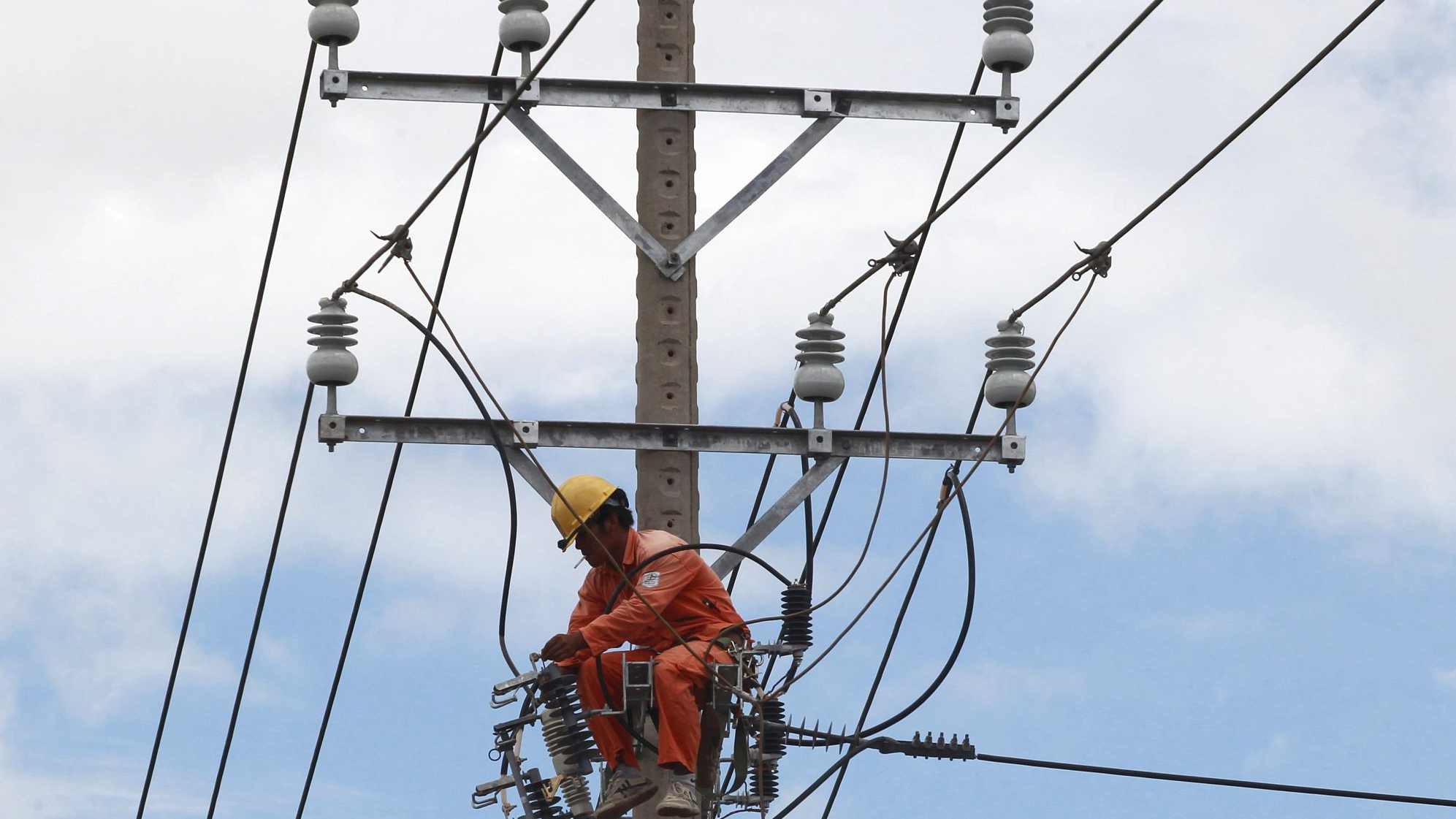
File photo: CGTN
CAPE TOWN, Dec. 9 (Xinhua) -- South African electricity utility Eskom on Monday blamed rains for worsening rolling power blackouts that have continued for five days running.
With the incessant rains, Eskom is beginning to experience flooding at some power stations, which has led to further load losses and impacted supply as the rainy weather persists, the utility said.
"Eskom has lost additional generation units this morning, increasing unplanned breakdowns to 14,200MW as at 09:25. Along with a higher demand of about 600MW, necessitates load shedding to move up from stage two to stage four from 10:00 today until 23:00," the state-run parastal said.
Stage two load shedding allows up to 2,000 MW to be shed, while stage four calls for 4,000 MW to be rotationally cut off.
Under stage four load shedding, South Africans have to endure unscheduled power cuts at any given time without warning for close to four hours at a time.
"We remind customers that load shedding at stage four is no cause for alarm as the system is being effectively controlled," Eskom said.
Load shedding is a responsible act and highly controlled process, implemented to protect the country form a national blackout, the utility said.
This latest round of rolling blackouts comes on the back of an already shrinking economy, and will further impact growth as South Africa heads into the festive season and the height of the country's tourism influx.
As the country's major electricity supplier, Eskom has maintained monopoly on power supply, leaving South Africa few alternatives for additional energy supplies.
Eskom has been haunted by poor management and alleged corruption, two major factors that have contributed to the worsening power crisis.
Experts estimate that the latest round of load shedding, which began on Dec. 5, has cost the country 5 billion rand (about 340 million U.S. dollars) in economic losses.


